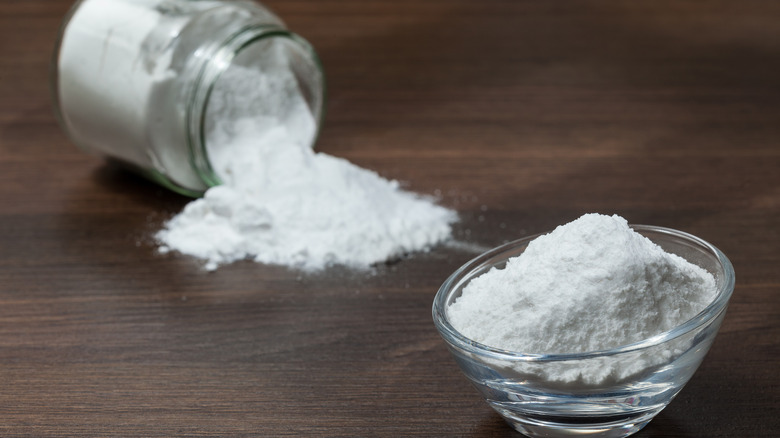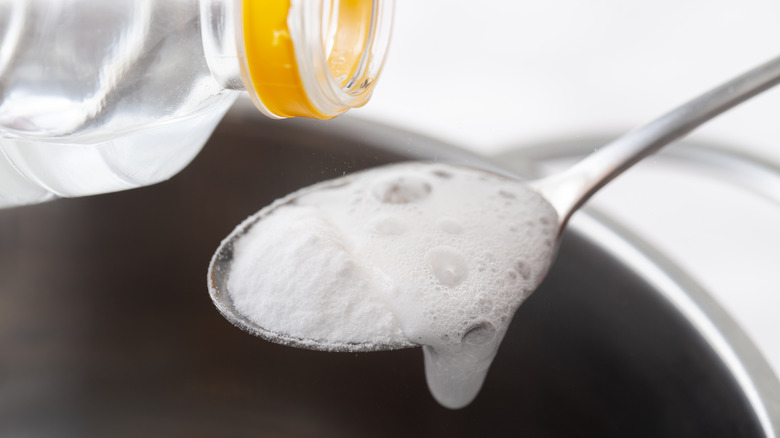The Truth About What's Really In Baking Soda
Baking soda is widely known as a baking ingredient. It's white, powdery, and doesn't have a smell — so what is it really?
Baking soda was first discovered in the 1790s by Nicolas LeBlanc, according to the American Chemical Society. It wasn't until the 1860s that it began to be produced on an industrial level, and today 2 million tons per year are produced annually around the world.
Also known as sodium bicarbonate, or a type of salt, baking soda is an alkaline substance, meaning it has a higher pH and is not very acidic (via WebMD). Short for "power of hydrogen," pH measures the concentration of hydrogen ions in a liquid, per Medical News Today. So when baking soda is dissolved in water, the pH measurement tells us that there are fewer hydrogen ions in the solution. This means that baking soda can be used for neutralizing acids, which is why it can settle your stomach, prevent tooth decay, or get rid of unwanted smells (via WebMD).
How does it work?
When baking soda reacts with an acid, like lemon juice, vinegar, or yogurt, it releases carbon dioxide (via Medical News Today). It's just like in the universal volcano science experiment — putting baking soda in a papier mache volcano and pouring in vinegar makes it erupt. Similarly, this is what happens in baking, which causes cakes and muffins to rise, changing the density and texture of the baked goods.
Today, baking soda is used for a number of other uses besides actual baking, according to WebMD. Adding ¼ teaspoon to a cup of water can help neutralize stomach acid and ease indigestion. Creating a paste of 1 part baking soda and 3 parts water can be useful on the skin for treating poison ivy, insect bites, and stings. Baking soda is a powerhouse in the kitchen, too — its alkaline properties can neutralize acidic smells, like sour milk or rotting garbage. Try putting an open box of it in the fridge or sprinkle it over your garbage.
However, talk to your healthcare provider before ingesting baking soda. Altering the amount of acid in the stomach can change the way bodies absorb certain medications (via WebMD).


